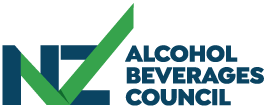MEDIA RELEASE 23 June 2020
Calls for harsher marketing rules for alcohol do not make sense in an already tightly regulated market, the NZ Alcohol Beverages Council (NZABC) said today in response to the Health and Disability System Review.
“The just-released health review claims that alcohol was “marketed and made widely available by those with commercial interests, to the detriment of New Zealanders’ health” and calls for tougher rules – but it ignores the fact that New Zealand has amongst the most strictly controlled marketing and advertising practices in the Western world, coupled with the fact we are seeing positive changes to how New Zealanders are drinking and their attitudes toward alcohol. Problem drinking has been declining for over a decade, fewer younger people are drinking, and Kiwis are drinking less with our alcohol consumption now below the OECD average,” says Bridget MacDonald, NZABC’s Executive Director.
The industry has also been proactive in going beyond the regulatory requirements of its marketing activities and is supporting new global standards of marketing responsibility and safeguards that will help ensure all new alcohol-related channels or campaigns are marketed responsibly online.
The International Alliance for Responsible Drinking (IARD), of which NZABC is a member, has formed a partnership with global digital platforms Facebook, Instagram, Snapchat, and YouTube to further limit the potential for underage online users to see advertising. This initiative also respects adults’ personal preferences and cultural differences with the safeguards also aiming to give people greater control over whether they see alcohol-related marketing online.
“We support the intentions of the Health and Disability System Review for better and more equitable health and wellbeing outcomes for all New Zealanders, including reducing harmful consumption of alcohol. What is needed is an all of-society approach and to invest in education and targeted real-world, practical solutions to tackle the problems that some people and communities face. To be effective, the health sector needs to work in partnership with all of its stakeholders, including the alcohol industry to achieve this,” says Bridget.
“There is always more work to be done to keep up the momentum for reducing harmful consumption, but the industry needs to be part of the conversation and the solution. Robust partnerships between private and public sectors are essential for achieving common health goals and solving challenges. By committing to working together we can achieve better outcomes,” says Bridget.
